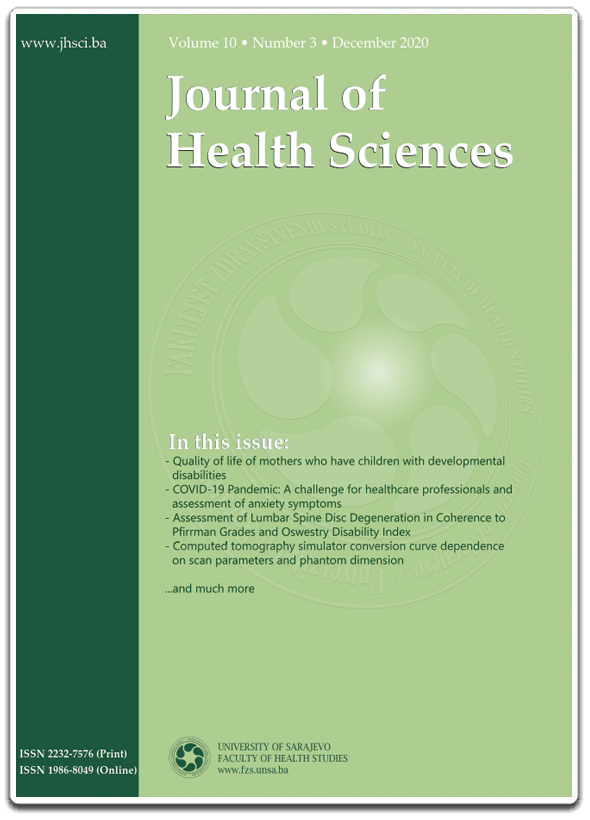Cognitive function recovery rate in early postoperative period: comparison of propofol, sevoflurane and isoflurane anesthesia
DOI:
https://doi.org/10.17532/jhsci.2013.29Keywords:
Postoperative cognitive dysfunction, propofol, sevoflurane, isoflurane, anesthesiaAbstract
Introduction: There is no simple answer to the question as to when the brain function is back to normal after anaesthesia. Research done so far has identified different factors influencing the rate of cognitive function recovery and type of anaesthetic as one of those factors.
Methods: This study encountered 90 patients hospitalized in neurosurgical department of University Clinical Centre Tuzla in period from October 2011 to may 2012 year. Aim of the study was to compare influence of three different anesthetics (propofol, isofl urane and sevofl urane) on recovery rate of cognitive performance 1, 5 and 10 minutes following extubation. Assessment of cognitive functions was preformed using the short Orientation-Memory-Concentration (OMC) Test. All patients included in the study underwent lumbar microdiscectomy surgery and were allocated to one of three groups: propofol, sevoflurane and isoflurane.
Results: Trough comparison of OMC test values there is obvious superiority in recovery of cognitive functions between propofol group and inhaled anesthetic group, after 1 minute (p = 0.008) and after 5 minutes (p =0.009). Comparison of propofol and isoflurane anesthesia shows significantly faster recovery of cognitive performance in propofol group (after 1 minute p = 0.002, 5 minutes p = 0.004, 10 minutes p = 0.038). Faster recovery of cognitive function is present in sevoflurane compared to isoflurane group only 1 minute after extubation p = 0.049.
Conclusions: Fastest recovery of cognitive performance appears after propofol anesthesia, than follows sevofl urane based anesthesia and after that isoflurane anesthesia.










